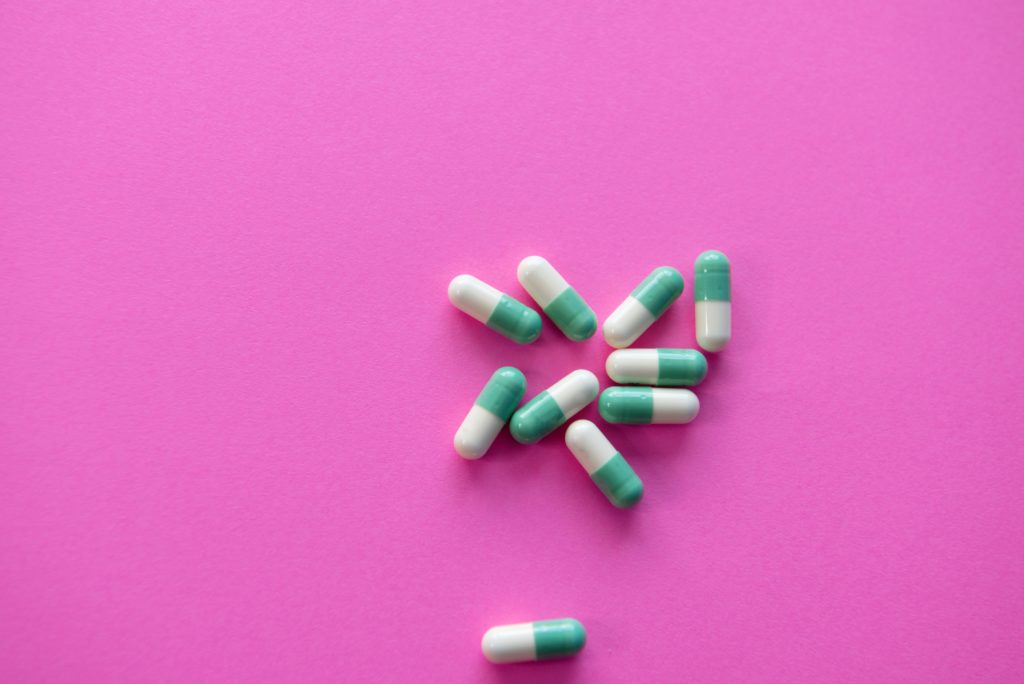Some people, notably high school and university students, regularly use prescription medications, such as Adderall, to supplement their academic performance. There are a number of myths associated with Adderall, including that it enhances academic performance for anybody who uses it (including those without ADHD).
What is Adderall?
Adderall is a stimulant and is commonly prescribed to help treat attention deficit hyperactivity disorder, also known as ADHD (2,6). Many believe that it allows them to focus more and that it contributes to an increase in overall cognitive performance. However, that’s not necessarily true.
There are a number of misconceptions associated with Adderall, including that it enhances academic performance, and that it causes ADHD in individuals who take it without having the disorder.
While there are other stimulants used to treat the disorder, throughout the article we will only refer to Ritalin and Adderall.
Myth #1: Adderall Enhances Brain Power for anybody who take it (1,2,6,8,10)
Ritalin and Adderall, commonly called smart pills by high school and college students, are prescription medications used to help individuals with ADHD cope with their hyperactivity, impulsivity and inattention. It is thought that individuals with ADHD have a chemical imbalance of dopamine (the happy hormone) in the brain. The chemical imbalance of dopamine plays a critical role in both learning and motivation. Very broadly, Adderall and Ritalin help alleviate the imbalance of dopamine by stimulating its release.
While it’s easy to assume that this could mean that a person without ADHD using the drug would benefit from an extra edge, this simply isn’t the case. A study conducted in 2018 investigated the effects of amphetamine (i.e., Adderall, 30 mg) on cognitive, autonomic and emotional functioning in a sample of healthy college students without ADHD. In this study, one group was given a placebo and the other group was given Adderall. A few hours after taking the pill, participants conducted a variety of neurocognitive tasks.
This study found that Adderall had little impact on neurocognitive performance. In fact, Adderall impaired the working memory performance of college students who were assigned the Adderall pill. Participants even reported worsened perception of their mental capabilities after taking the drug. The study concluded that Adderall may not enhance academic performance in healthy college students without ADHD, and the perceived benefits are all in their heads!
We acknowledge that the results of this study are not to be generalized as the sample size of the study was small.
Myth #2: Adderall causes ADHD (4,6,9)
Adderall and Ritalin can do a lot to a person’s body, however causing ADHD is not one of them. One reason why this myth prevails may be due to the fact that many individuals with ADHD go undiagnosed for most of their lives. When reaching higher levels of education, they may self-medicate by taking these prescription medications. Thus, when diagnosed later on in life, they mistakenly attribute the stimulant use to their diagnosis!
Myth #3: It is Harmless! (3,5,6,7,8)
It is never a good idea to abuse prescription medications of any kind for any reason. When taking Adderall, many people experience a sense of being high, a loss of appetite, insomnia, emotional lability, nervousness, fever, social withdrawal, and getting the “jitters”. There are also potential adverse side effects on cardiovascular health, particularly for people with a family history of cardiovascular disease and disorders.
Moreover, there are not many studies that look into the long-term effects of the stimulants used for ADHD. Studies that have been done only look at individuals who take regulated and consistent amounts of the drugs. People taking the drug sporadically in large amounts must be cautious as not many studies have explored the side effects resulting from this type of consumption.
Conclusion
To conclude, people who take these stimuli without being diagnosed with ADHD may perceive benefits due to a placebo effect: Since you believe that it helps you, it really does help you. That being said, using or abusing Adderall or other kinds of stimulants without having consulted a psychiatrist beforehand may result in unexpected side effects.
References
- Berke, J. D. (2018). What does dopamine mean? Nature neuroscience, 21(6), 787–793. https://doi.org/10.1038/s41593-018-0152-y
- Briars, L., & Todd, T. (2016). A Review of Pharmacological Management of Attention-Deficit/Hyperactivity Disorder. The journal of pediatric pharmacology and therapeutics : JPPT : the official journal of PPAG, 21(3), 192–206. https://doi.org/10.5863/1551-6776-21.3.192
- Berman, S. M., Kuczenski, R., McCracken, J. T., & London, E. D. (2009). Potential adverse effects of amphetamine treatment on brain and behavior: a review. Molecular psychiatry, 14(2), 123–142. https://doi.org/10.1038/mp.2008.90
- Faraone, S. V., Sergeant, J., Gillberg, C., & Biederman, J. (2003). The worldwide prevalence of ADHD: is it an American condition? World psychiatry : official journal of the World Psychiatric Association (WPA), 2(2), 104–113.
- Lakhan, S. E., & Kirchgessner, A. (2012). Prescription stimulants in individuals with and without attention deficit hyperactivity disorder: misuse, cognitive impact, and adverse effects. Brain and behavior, 2(5), 661–677. https://doi.org/10.1002/brb3.78
- Mariani, J. J., & Levin, F. R. (2007). Treatment strategies for co-occurring ADHD and substance use disorders. The American journal on addictions, 16(1), 45–56. https://doi.org/10.1080/10550490601082783
- Sichilima, T., & Rieder, M. J. (2009). Adderall and cardiovascular risk: A therapeutic dilemma. Paediatrics & child health, 14(3), 193–195. https://doi.org/10.1093/pch/14.3.193
- Weyandt, L. L., White, T. L., Gudmundsdottir, B. G., Nitenson, A. Z., Rathkey, E. S., De Leon, K. A., & Bjorn, S. A. (2018). Neurocognitive, Autonomic, and Mood Effects of Adderall: A Pilot Study of Healthy College Students. Pharmacy, 6(3), 58. https://doi.org/10.3390/pharmacy6030058
- Zulauf, C. A., Sprich, S. E., Safren, S. A., & Wilens, T. E. (2014). The complicated relationship between attention deficit/hyperactivity disorder and substance use disorders. Current psychiatry reports, 16(3), 436. https://doi.org/10.1007/s11920-013-0436-6
- Weyandt, L. L., Oster, D. R., Gudmundsdottir, B. G., DuPaul, G. J., & Anastopoulos, A. D. (2017). Neuropsychological functioning in college students with and without ADHD. Neuropsychology, 31(2), 160-172. https://doi.org/10.1037/neu0000326





